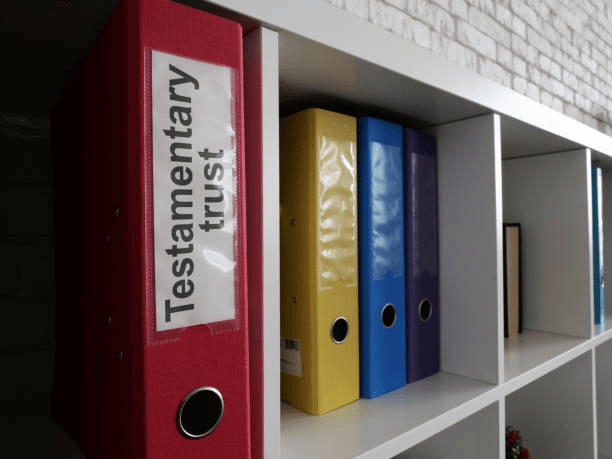When it comes to estate planning, a testamentary trust NSW is a popular option for many people. A testamentary trust is a legal entity that manages the assets of a deceased person in accordance with instructions in the person’s Will. It is not just another trust, but a discretionary trust. This is because it is associated with many aspects peculiar to testamentary trusts that do not apply to other types of trusts.
In this article, we will explore the:
- nature of a testamentary trust,
- its benefits, and
- how to set it up in NSW.
Whether you are a lawyer, an executor, or an individual looking to set up a testamentary trust in the most tax efficient manner, this article will provide you with valuable insights of this important estate planning tool.
Key Features of a Testamentary Trust in NSW
Here are some key features of a testamentary trust in NSW:
- This is a trust created by a valid Will; nonetheless, it is distinct from the estate of the deceased. Certain elements of the Will act as a trust deed in a testamentary trust. The class of general beneficiaries of the Testamentary Trust includes your beneficiary’s spouse and children and other beneficiaries. Trust income can also be streamed to children for e.g. payments of school fees.
- The trust is managed by a trustee who is appointed by the testator in their Will.
- The trustee has the power to distribute the trust assets to the beneficiaries in accordance with the instructions in the Will.
- The beneficiaries of the trust do not have direct access to the assets of the trust, but rather receive distributions from the trustee.
- This type of trust can offer asset protection and tax benefits.
- It can be complex and requires careful planning and drafting to ensure that it achieves the desired outcomes.
Overall, a testamentary trust can be an effective estate planning tool that provides greater flexibility and protection for the testator’s family assets and beneficiaries.
When Using a Testamentary Trust, There are Significant Advantages Like:
- Paying your assets into this trust without paying any Stamp Duty and Capital Gains Tax. This is because the transfer takes place through your Will. If a beneficiary is experiencing solvency issues, it is possible that the inherited assets may be susceptible to claims made by creditors.
- Including the accumulated balance of a superannuation fund and life insurance policy entitlements into your Testamentary Trust.
- Protecting your beneficiaries’ inheritance if they go through a breakdown of a marriage or de facto relationship. Usually, beneficiaries invest the funds they receive out of a normal Will to earn an extra income. That income is also added to their salary and they pay tax at usual marginal rates.
Setting up a Testamentary Trust
Setting up this kind of trust in NSW requires careful planning and drafting to ensure that it achieves the desired outcomes. Here are some steps to consider when setting up a testamentary trust:
- Seek professional advice. Consult a lawyer or an accountant who has experience in setting up testamentary trusts. You may also discuss your goals and objectives for the trust, as well as the assets you wish to include in the trust.
- Draft a Will. Parties establish this kind of trust through a Will, so you will need to draft a Will that includes instructions for the trust. In the Will, you must nominate a trustee who will manage the trust and distribute the assets to the beneficiaries. Moreover, you need to specify the terms and conditions of the trust, such as the beneficiaries, the assets to be held in trust, and the distribution of income and capital.
- Fund the trust. Transfer the assets to the trust, either during your lifetime or arrange for this to take place after your death. You should never forget to ensure that the trust is properly funded, as insufficient assets may result in the trust being wound up.
- Administer the trust. The trustee is responsible for managing the trust and distributing the assets to the beneficiaries in accordance with the instructions in the Will. The trustee must keep accurate records and prepare annual tax returns for the trust.
Importance of Having Sufficient Assets
Why do you need to have sufficient assets when it comes to setting up a trust? The reason for that is to justify the expense of administering the trust. Here are more specific reasons why:
- Accounts will need to be prepared and maintained, and a tax return will need to be lodged each year. This can be costly, and if the assets held by the trust are not sufficient to cover these expenses, it may not be worth establishing the trust.
- The trustee will need to manage the trust and distribute the assets to the beneficiaries in accordance with the instructions in the Will.
- Insufficient assets may result in the trust being wound up, which can be costly and time-consuming.
Advantages of a Testamentary Trust NSW
1. Asset protection. This kind of trust can provide asset protection for beneficiaries, especially in situations such as bankruptcy or marriage breakdown.
2. Tax benefits. Testamentary trusts can offer tax advantages for beneficiaries. Income gains, capital gains, and franked dividends can be distributed among beneficiaries, potentially resulting in lower tax liabilities.
3. Flexibility in distribution. The trustee has discretion in determining how and when the assets are distributed, allowing for tailored distributions based on individual circumstances.
4. Protection for vulnerable beneficiaries. It can be particularly useful for protecting vulnerable beneficiaries, such as minors, individuals with disabilities, or those with addiction issues.
5. Continuity of control. By establishing a testamentary trust, the testator can maintain control over the distribution of their assets even after their death.
6. Privacy and confidentiality. Unlike a Will, which becomes a public document upon probate, it can provide a level of privacy and confidentiality.
Note that the advantages of a testamentary trust may vary depending on individual circumstances and the specific provisions outlined in the trust. Seeking professional advice from lawyers or accountants experienced in estate planning is crucial to fully understand and maximize the benefits of a testamentary trust.

Seek Legal Help From Expert Testamentary Trust Lawyers
Choosing a family trust lawyer with experience in setting up testamentary trusts is of utmost importance. Here’s why:
- Trust lawyers with experience in setting up testamentary trusts have a deep understanding of estate planning laws and regulations.
- An experienced lawyer can guide you through the various trust structures and help you choose the one that best suits your needs.
- A lawyer experienced in testamentary trusts can provide personalised advice based on your unique circumstances.
- Testamentary trusts may face challenges such as potential disputes or changes in legislation. A knowledgeable lawyer can anticipate and address these risks, ensuring that your trust is robust and legally sound.
- Establishing a trust involves drafting legal documents and ensuring compliance with relevant laws.
- Choosing a lawyer with experience in testamentary trusts means having a trusted advisor who can provide ongoing support and guidance.
You can rely on JB Solicitors for your legal needs, particularly with family trust concerns. Contact us today.
